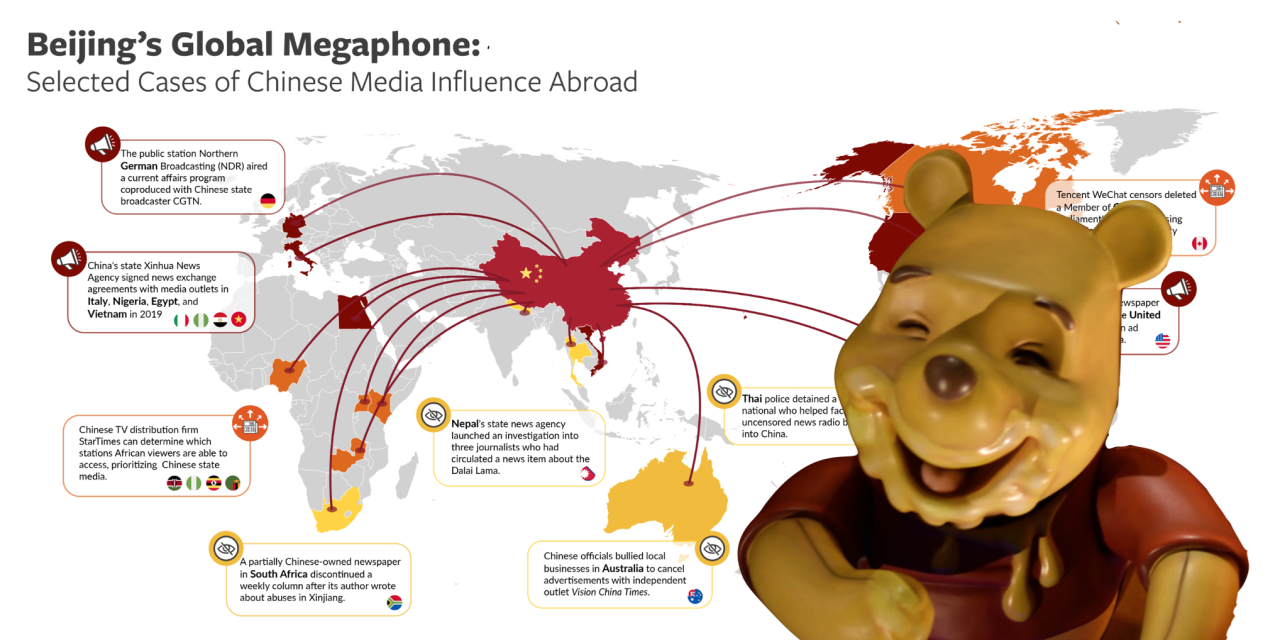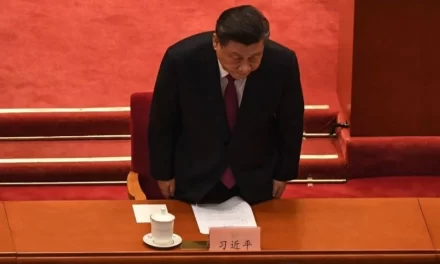By Bradley A. Thayer
A new Australian Strategic Policy Institute report by Fergus Ryan, Daria Impiombato and His-Ting Pai, Frontier Influencers: The New Face of China’s Propaganda is an exceptional study that documents a pernicious problem: how the Chinese party-state’s globally focused propaganda and disinformation are becoming far more sophisticated and influential in recent years. China’s efforts to affect the global discourse about China, particularly on its gross human rights violations, is largely undetected by Western policymakers and social media platforms. The authors focus upon a popular set of YouTube accounts where principally female China-based ethnic-minority influencers from Xinjiang, Tibet, and Inner Mongolia on China’s frontier, hence “frontier influencers,” shape world opinion about the Chinese Communist Party.
The frontier influencers are more effective than traditional weapons in Beijing’s propaganda arsenal due to their personal style of outreach and messaging. The study notes that frontier influencers should be considered “guerrillas” fight along the flanks of international public opinion while tradition party-state media should be considered the “regular army” waging ideological warfare. Just like guerrillas, they can reach audiences and generate support in places regular armies cannot go or where they would not be as effective.
Employing a careful methodology, the authors examine 18 YouTube accounts made in 2020-2021 and feature young Uyghur, Tibetan, and other ethnic minorities. Each has a significant number of followers ranging from 2,000 to 205,000. Given the CCP’s tight control of the internet, and the fact that YouTube is banned in China, the presence of these accounts should raise eyebrows. These vloggers are carefully vetted, and so will reliably adhere to the Party line and advance positions desired by them. Additionally, as the frontier influencers are state-supported, they will feature prominently in search-engine algorithms as they typically highlight fresh content and channels that post frequently. Although their research focuses on YouTube, the authors note that the frontier influencers are also likely on Twitter, Facebook, and other networks as well.
The study is critically important for four reasons. First, it demonstrates that the importance that the Chinese party-state places on ideological warfare to shape global opinion, to have the dominant voice on issues like human rights and the treatment of ethnic and religious minorities within China. But these tactics also to minimize resistance to China’s expansion and other strategic objectives, as well as shaping the narrative about the future of international politics and the dominant norms, principles, and values in the future. Second, as the study emphasizes, the party-state is constantly evolving all aspects of ideological warfare as it employs traditional tools but also exploits opportunities present by new platforms on social media. The frontier influencers show the purportedly happy life of ethnic minorities and thus are horrendous lies that serve to mask the party-state’s gross human rights abuses, including genocide and widespread imprisonment, forced labor and intermarriage between Muslim women and Han men. The videos allegedly document patriotic loyalty of ethnic minorities to the CCP, the happiness of the people and how all ethnic groups living together harmoniously, they tout ethnic delicacies and recipes, and capture the beauty of the land—all the while documenting the cultures and lifestyles of the peoples the party-state seeks to destroy. Third, the study reveals key tactics regarding how the party-state can conceal its presence and association with these influencers to advance “independent,” “authoritative,” and “indigenous” false narratives. Thus, they serve as a particularly malevolent form of disinformation and deliberate distraction about what the CCP is doing to its frontier ethnic minorities while advancing the narrative required by Xi Jinping that he advanced in 2013 to advance China’s soft power and attractiveness in world politics: that China should be portrayed as a civilized country featuring rich history, ethnic unity, and cultural diversity. It also accords with Xi’s “five identifications” required of China’s ethnic minorities, that they identify with the homeland, with Chinese (i.e. Han-centric) people, culture, with the Communist Party, and with socialism with Chinese characteristics. Fourth, the study provides an exceptional account of policy measures that may address the problems so well identified. These recommendations include, first, that U.S. social media platforms stop partnering with, promoting, and giving awards to multi-channel networks that are conducing propaganda and disinformation on China’s behalf; second, platforms should label these accounts to give users context and awareness about these insidious forms of manipulation; and third, until China permits U.S. platforms to operate within China, U.S. platforms should stop allowing MCNs to monetize content from creators based in China.
This report is illustrative more broadly of the excellent work conducted by ASPI and other researchers such as Anne-Marie Brady, Clive Hamilton, and Alex Joske who have documented aspects of the CCP’s ideological warfare campaign against the West. The study expertly captures the adaptivity and relentlessness of the party-state, and why the response to its disinformation must be equally so.
Bradley A. Thayer is Director of China Policy at the Center for Security Policy. He is the coauthor of Understanding the China Threat.




















